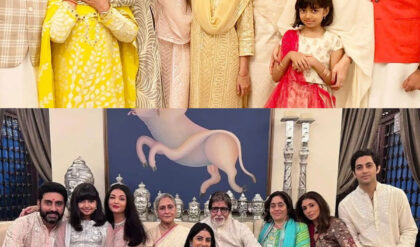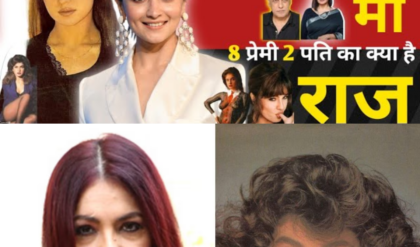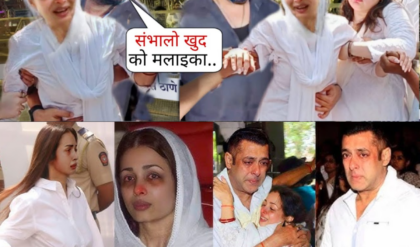BREAKING: Why Bollywood Hates Kareena Kapoor so Much
.
.
.
 This image of Bollywood actor Kareena Kapoor Khan appears on the cover of Gurpreet Singh’s book, From Nazneen to Naina. Photo by Pankaj Sharma.
This image of Bollywood actor Kareena Kapoor Khan appears on the cover of Gurpreet Singh’s book, From Nazneen to Naina. Photo by Pankaj Sharma.
“Standing up for an inclusive India that respects its neighbours does not make anyone less patriotic.”
— author Gurpreet Singh
Famed Bollywood star Kareena Kapoor Khan is not just a celluloid activist, according to Metro Vancouver writer Gurpreet Singh.
That’s apparent to anyone who reads his book, Nazneen to Naina: 20 years of Kareena Kapoor Khan in Bollywood and what that means for India and the rest of the world (Chetna Parkashan),
Unlike many Hindu stars in Bollywood who’ve refused to speak out against the growing anti-Muslim mood in the country, Kapoor Khan has, on occasion, gone against this tide. For this, she’s been unfairly vilified by supporters of the extremist Hindutva philosophy.
From Nazneen to Naina is a colourful, brisk, ambitious, and politically charged examination one of Mumbai’s greatest actors in a land ruled by Narendra Modi. And it’s just recently become available in paperback on Amazon.
The title refers to her roles, including her debut as Nazneen in the landmark film Refugee opposite a young Abhishek Bachchan. It spoke volumes about how Bihari Muslims were mistreated not only by Hindus, but also by fellow Muslims in neighbouring West Bengal and in Pakistan. I’ll get to Kapoor Khan later in this article, but let’s start with some context.
Modi transforms India
Modi and his communalist Bharatiya Janata Party swept to power in 2014.
As Singh documents, this changed the cultural landscape of the country by making religious minorities and Dalits (so-called Hindu “untouchables”) feel even less welcome than they did under the previous Congress-led regime. Along with Modi’s rise came an increase in assaults on Muslims and Christians.
In particular, fundamentalist mobs sought out so-called beef eaters, invariably Muslims, who’ve been attacked as they gone about their business.
In addition, Modi’s BJP introduced draconian legislation affecting the livelihood of farmers, including many Sikhs, who then rose up to rebel with a year-long demonstration in the nation’s capital.
Meanwhile, Modi’s sidekick, Amit Shah, amended the constitution to take away special status for Kashmir and Jammu, the only Muslim-majority state in the country. The government passed another law discriminating against Muslim refugees who wanted to settle in India from neighbouring countries. And Modi endorsed the candidacy of a Hindu fundamentalist candidate accused of terrorism against Muslims.
“This will be a victory of religion,” Pragya Thakur reportedly said on election night in 2019.
In effect, Modi, Shah, and their BJP cronies embarked on a project to unravel the secular nature of the Indian state. Secularism, in which all followers of all religions should be treated equally, was one of the great legacies of freedom fighters such as Mohandas K. Gandhi, towering Dalit leader B.R. Ambedkar, and the country’s first prime minister, Jawaharlal Nehru. Gurpreet Singh wants people to view Kareena Kapoor Khan’s life within the larger context of growing intolerance in India.
Gurpreet Singh wants people to view Kareena Kapoor Khan’s life within the larger context of growing intolerance in India.
Singh defends a secular India
In recent years, Singh has led the charge in Canada to expose the BJP’s real agenda through his writings in several publications. Despite the seriousness of this issue for the approximately 200 million Muslims in India, Singh’s stellar efforts have largely gone under the radar screen of the Canadian media.
From Nazneen to Naina is another manifestation of Singh’s single-minded determination to warn the public about the perils of majoritarianism in India. In Kapoor Khan, he’s found a compelling person through which to tell this story to the masses.
As a scion of India’s first family of film—the Kapoors—she might seem very privileged. Her great-grandfather, Prithviraj Kapoor, founded Prithvi Theatre, putting on shows across India. He was also a progressive Indian nationalist on the side of those battling British rule.
Her grandfather, Raj Kapoor gained worldwide fame as one of the greatest actors and filmmakers in the history of Hindi cinema. Her uncle Rishi was another acting legend, who spoke spoke out against Hindu fundamentalism before he died in 2020.
Rishi’s son, Ranbir Kapoor, is perhaps the most talented and versatile male actor of his generation in Bollywood today.
As Singh points out in his book, Kapoor Khan’s father Randhir was also an actor. He separated from his wife Babita, also an actor, in 1988. This meant that Kapoor Khan and her sister Karisma (also an actor) were mostly raised by a single mother. Singh dedicates his book to Babita for raising Kareena to become such a strong, independent-minded, and compelling movie star.
Because she married a Muslim, film actor Saif Ali Khan, Kapoor Khan came under the suspicion of Hindu fundamentalists. This intensified after she and her husband named their first son Taimur. It happened to be the name of a Moghul emperor.
 This photograph of the glamorous Kareena Kapoor Khan was taken for an episode of Dance India Dance. Image provided by BollywoodHungama.
This photograph of the glamorous Kareena Kapoor Khan was taken for an episode of Dance India Dance. Image provided by BollywoodHungama.Hounded by hate
Even though her husband reportedly considered changing the boy’s name after a Hindu fundamentalist uproar, Kapoor Khan refused to budge.
“Taimur means iron, and I will produce (an) ironman,” she stated, according to the book. “I am proud to have him named Taimur.”
Kapoor Khan also publicly stood up for Asifa Bano, an eight-year-old Muslim girl raped by a gang of Hindu fundamentalists inside a temple in 2018.
“The religious fanatics involved in this horrible crime wanted to terrorise local Muslims and force them to flee,” Singh writes in his book. “They used rape as a weapon to settle scores with the Bakarwal Muslim community.”
Along with the politics, Singh delivers intriguing and informative summaries of Kapoor Khan’s films. This sheds light on how her roles have reflected the terrible consequences of religious communalism and the courage of those who stood in opposition to this.
It’s too bad that he completed the book before the release of her recent film with Aamir Khan, Lal Singh Chaddha. It poked fundamentalists in the eye with its nuanced and effective endorsement of looking upon everyone equally, regardless of their faith.
But even before this movie reached cinemas, Singh shows what Kapoor had to endure at the hands of the fanatics. They seized on the issue of nepotism while smearing her intellect following the death of 34-year-old Bollywood star Shushant Singh Rajput.
“This is no the first time that Kareena has to bear to much hate,” Singh writes. “She was hounded by the trolls for marrying a Muslim man and adopting Khan as her last name, and he for naming her son after a controversial Muslim historical figure and standing up for a Muslim girl who was raped and murdered by Hindu fanatics in 2018.” Kareena Kapoor Khan tweeted this image of herself after an eight-year-old Muslim girl was raped by Hindu fanatics in 2018.
Kareena Kapoor Khan tweeted this image of herself after an eight-year-old Muslim girl was raped by Hindu fanatics in 2018.
Politics permeate recent film releases
Singh connects the dots to show how all of this is linked to the BJP’s influence on the political environment. He also documents how this has shaped several Bollywood films, particularly those made in recent years.
It’s not all hagiography. In one chapter, “Bebo under cross examination”, Singh takes her to task for not speaking out more forcefully against the widespread persecution of Muslims in India.
The author would also like to see her condemn “colourism”. Currently, cosmetic products, including some that are toxic, are being marketed to darker-skinned Indians who want to lighten their complexion. Singh wants Kapoor Khan to raise her voice in opposition.
Yet he clearly demonstrates that she’s still gone further than almost all of her peers, with the exception of Aamir Khan, in representing the ideals that the independent nation of India was founded upon.
Lovers of Bollywood movies can take delight in Singh’s detailed examination of Kapoor Khan’s impressive film career. And those who are horrified by the direction of India under Modi’s leadership can gain great insights from Singh’s deep insights into Indian politics.
“We need to situate her story in the broader context of the current situation we are in,” Singh writes in his concluding paragraph. “It is not just her story, but also the story of all of us, forced to accept the new norm of living in a toxic environment poisoned by racial and religious nationalism.”
He then urges readers not to accept the narrative of “Modi-Trump supporters”.
“It’s time we open our eyes and try to see a different Kareena, who is more than bold and beautiful.”





